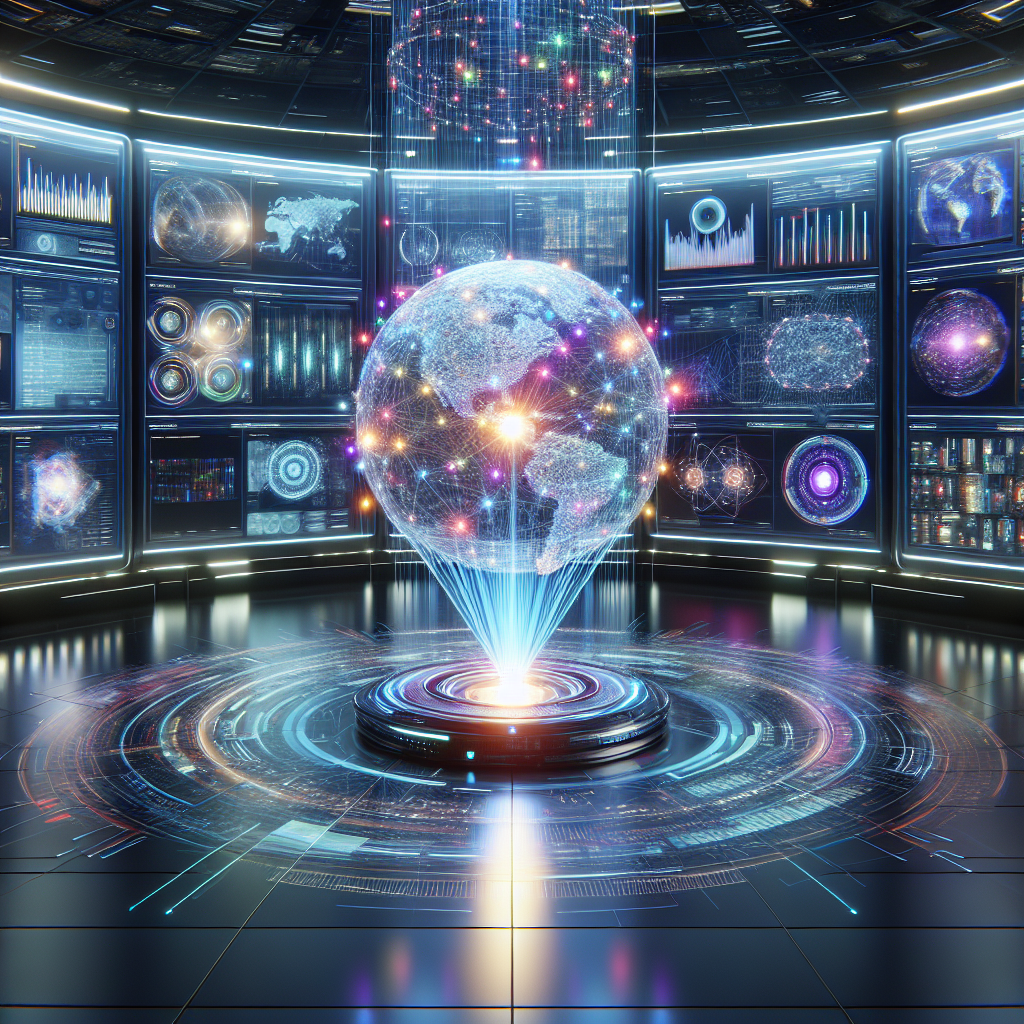The Strategic Blueprint for Achieving Artificial General Intelligence: Leveraging the World's Knowledge
Artificial General Intelligence (AGI) has long been the Holy Grail of technology's evolutionary journey, tantalizing scientists and enthusiasts alike with its potential to revolutionize our world. The quest for AGI—an intelligence that can understand, learn, and apply knowledge across a broad range of tasks as adeptly as a human—has spawned various theories and methods. Yet, amidst the myriad of pathways and philosophies, one approach shines brightly with promise: harnessing the vast reservoir of human knowledge, combined with the power of advanced algorithms, to fast-track the emergence of AGI. This article delves into why leveraging the world's cumulative wisdom and cutting-edge technologies may not just be a viable route to AGI, but indeed, the most expedient and plausible one.
The Reservoir of Human Knowledge: An Untapped Goldmine
In the pursuit of AGI, the allure of starting from scratch or inventing new methodologies from the ground up is strong. However, the practical and efficient path likely lies in utilizing the treasure trove of information already at our disposal. The internet, libraries, and archives around the globe are brimming with the sum total of human knowledge—science, history, art, and more. This vast pool represents not just data, but a foundation upon which intelligent systems can learn, grow, and eventually think independently.
The argument for tapping into this existing knowledge base rests on a simple premise: why reinvent the wheel when you can stand on the shoulders of giants? By absorbing and processing the wealth of information that humanity has accumulated, AGI systems can leapfrog stages of development, bypassing elementary learning phases to focus on higher-level reasoning and cognitive capabilities.
Transformers and Scalable Algorithms: The Powerhouses of Learning
At the heart of this visionary strategy lie Transformers and other scalable algorithms—technologies capable of digesting and making sense of the deluge of data. These tools have demonstrated remarkable efficacy in understanding context, drawing inferences, and even generating human-like text based on the information they've been fed. Their ability to ingest and process massive datasets makes them the perfect candidates for absorbing the world's knowledge.
The significance of these algorithms extends beyond mere data processing. They represent a foundational prior, a starting point from which AGI systems can expand their understanding and adapt to new information. In essence, these algorithms provide a scaffold on which further learning and cognitive development can be built.
AlphaZero and Beyond: The Next Frontier in AGI Development
While the ability to learn from existing knowledge is crucial, the ultimate ambition of AGI is to navigate the world, make decisions, and achieve goals as effectively as a human. Enter systems like AlphaZero and its ilk—AI that demonstrate an uncanny ability to plan, strategize, and excel in complex environments. AlphaZero, originally designed to master games like Chess and Go, showcases an important principle for AGI: the power of self-improvement through iteration and experimentation.
The relevance of AlphaZero to the AGI conversation is profound. It symbolizes the next layer of development, where AI not only learns from pre-existing data but also uses that knowledge to make concrete plans and execute tasks. By incorporating these planning mechanisms on top of a foundation built on the world's knowledge, AGI systems gain the capability to not just understand the world, but to act within it purposefully.
The Symphony of Thought: Chaining Reasoning and Exploring Possibilities
Achieving AGI isn't solely about storing and accessing information or even about making plans. It's about the ability to chain thoughts together, to reason, and to navigate massive spaces of possibilities through sophisticated forms of search. This aspect of AGI development involves enabling AI systems to simulate lines of reasoning, akin to how humans think through problems, weigh options, and make decisions.
The integration of these capabilities—massive knowledge ingestion, advanced planning, and complex reasoning—paints a picture of what AGI could look like. It's not just an AI that knows a lot or that can beat humans at games; it's an AI that can think, learn, and grow in ways that resemble human cognition.
Charting the Course: The Pathway to AGI
As we chart the course toward achieving Artificial General Intelligence, the pathway becomes clear: start with what we already know and build upon it. By leveraging the world's accumulated knowledge and combining it with advanced learning algorithms, we set the stage for AGI systems to emerge. The journey involves not just absorption of information, but the development of capabilities that allow for planning, reasoning, and navigating the complexities of the real world.
In the quest for AGI, we stand at the brink of a new era, where the fusion of human knowledge and machine capability promises to unlock potentials beyond our current imagining. The promise of AGI lies not just in solving the problems of today but in paving the way for innovations that redefine what's possible tomorrow.
For those interested in exploring more about the technologies and methodologies driving the future of AI and AGI, consider delving into resources such as OpenAI's research on transformers and DeepMind's insights into AlphaZero.
The journey toward Artificial General Intelligence is undoubtedly complex and fraught with challenges. Yet, by integrating the wealth of human knowledge with advanced computational techniques, we embark on a promising and exciting pathway to realizing the dream of AGI—a vision that has the power to transform our world in ways we are only beginning to imagine.
Related News
- Navigating the Maze: The Future of Artificial General Intelligence
- The Race to AGI: Navigating the Treacherous Path Beyond GPT-7
- Peering Into the Crystal Ball: AI's Exponential Trajectory and the Quest for AGI
- Unraveling the Future: DeepMind's Vision for AI and the Quest for AGI
- Unraveling the AGI Paradox: Navigating the Continuous Landscape of Intelligence
